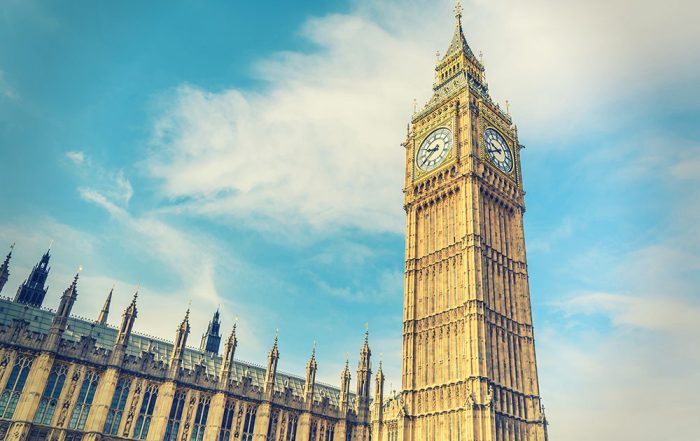Making the right decisions today could boost your
retirement pot and make the future a whole lot brighter
When considering retirement planning, pension savings are a crucial component of your financial strategy and essential for a comfortable retirement. Securing the right professional advice is critical, as decisions made at this stage will significantly impact you and your family.
Saving in a pension is one of the most tax-efficient ways to invest for your future. However, to many people, it’s understandable that pension rules seem like a minefield – and the most recent changes in pension legislation have made this already complex topic even more challenging. So what do the latest changes mean?

Key pension questions to consider
How many different pension plans do you have? Do you have the details for each plan? Do you know how much is saved in each one? How well are they performing? What are the charges and levels of risk for each plan? How much income will you need in retirement to live life the way you want? Are your pension funds and other assets enough to provide that income?
Reviewing your pension plans
If you are unsure of the answers to some of these questions, this could be an ideal time to review your pension and retirement plans and make any changes to provide the future you want. Recent changes in pension legislation may offer a beneficial opportunity.
You may already know that there have been two key changes to pension rules recently. This has created opportunities to increase pension savings for some people and take stock of what they already have.
Removal of the Lifetime Allowance tax charge
Firstly, the Lifetime Allowance (LTA) tax charge has been removed as of 6 April 2023. Previously, anyone withdrawing benefits from their pension fund above the LTA of £1,073,100 (or the applicable fixed, enhanced, individual or primary protection amount) was subject to a tax charge. This charge could be either 55% or 25%, depending on whether they were taking a lump sum or income.
The Spring Budget in March 2023 reduced this charge to 0%. More recently, the Autumn Statement 2023 confirmed that the LTA would be removed entirely from 6 April 2024, which has now taken effect.
Opportunities for pension contributions
As a result, you can now theoretically add to your pension (with set limits applying to tax relief) without worrying about a penal tax charge if you breach the old LTA. So, if you have had to stop paying money into your pension fund to avoid this tax, now would be a good time to discuss with us whether it would be prudent to add more.
Increased annual contribution limits
Secondly, the maximum annual contribution has been increased from £40,000 to £60,000 subject to relevant earnings or those who have triggered the MPAA. It’s worth noting that this legislation could change again.
These changes could benefit you if you want to pay more into your pension and have a pension fund above or near the previous LTA figure or a higher fixed protection amount. Additionally, if you stopped contributing to your pension and applied for fixed protection in 2012, 2014 or 2016, now would be a good time to discuss this with us.
A tax-efficient way to invest
At a glance, these changes seem to make pensions an even more tax-efficient way to invest – but pensions are complex, and these rules are not straightforward. There’s no guarantee that the LTA will not be reinstated, which could create issues. It is also possible that another protection scheme may be introduced if the LTA is reinstated.
Changing your pension contributions might also affect how you draw your salary. This means it’s desirable to get the right professional advice and consider your financial arrangements as a whole before making any decisions.
What are your options?
If any of these questions apply to you, you may want to consider obtaining professional advice about your options. Do you have one or more old pension funds that might be treated differently under the new rules? Are you aiming to retire within the next couple of years, or would you like to retire earlier than you planned? Have you already made withdrawals from your pension but then returned to work?
Do you want to reduce the Inheritance Tax burden on your heirs? Might you inherit a pension soon? If any of these apply to you and you think you might be able to benefit from the recent changes, get in touch with us.
THIS ARTICLE DOES NOT CONSTITUTE TAX, LEGAL OR FINANCIAL ADVICE AND SHOULD NOT BE RELIED UPON AS SUCH. TAX TREATMENT DEPENDS ON THE INDIVIDUAL CIRCUMSTANCES OF EACH CLIENT AND MAY BE SUBJECT TO CHANGE IN THE FUTURE. FOR GUIDANCE, SEEK PROFESSIONAL ADVICE.
A PENSION IS A LONG-TERM INVESTMENT NOT NORMALLY ACCESSIBLE UNTIL AGE 55 (57 FROM APRIL 2028 UNLESS THE PLAN HAS A PROTECTED PENSION AGE).
THE VALUE OF YOUR INVESTMENTS (AND ANY INCOME FROM THEM) CAN GO DOWN AS WELL AS UP, WHICH WOULD HAVE AN IMPACT ON THE LEVEL OF PENSION BENEFITS AVAILABLE.
YOUR PENSION INCOME COULD ALSO BE AFFECTED BY THE INTEREST RATES AT THE TIME YOU TAKE YOUR BENEFITS.
Contact Us Form
Please complete this form if you wish to send us your questions or if you would like to request a call back.
We look forward to speaking with you.
Recent GWM articles that may be of interest
Smart Money January/February 2026
Smart Money January/February 2026 Welcome to the November/December 2025 edition of Smart Money. [...]
Smart Money November/December 2025
Smart Money November/December 2025 Welcome to the November/December 2025 edition of Smart Money. [...]
Autumn Budget 2025: Key Financial Planning Implications for Business Owners
The Chancellor delivered the Autumn Budget on 26 November 2025, outlining significant changes across personal [...]
Why remaining invested supports long-term growth
Unlocking the potential of your investments and securing your financial future When it comes to [...]
Why protection matters
Do you have a safety net for you and your loved ones in case the [...]
Why has a lifetime gifting cap raised concerns?
Proposed policy would fundamentally change how wealth is transferred across generations Concerns are growing about [...]







